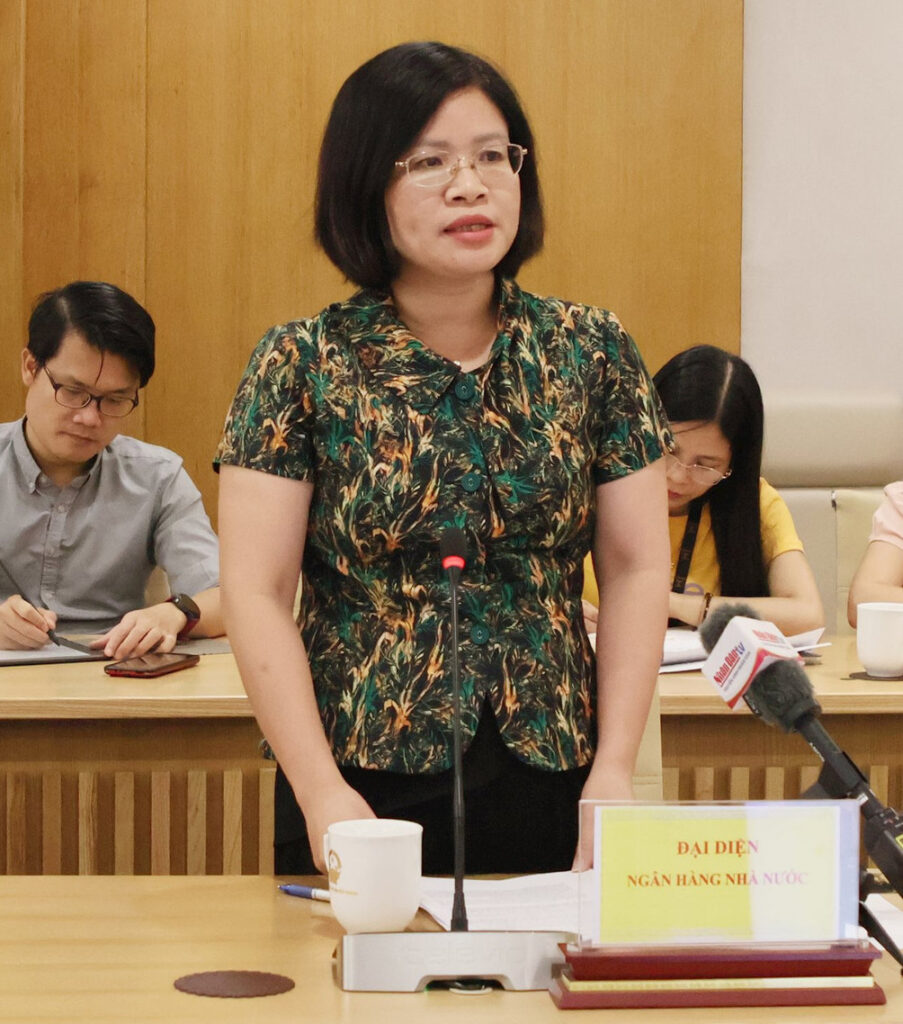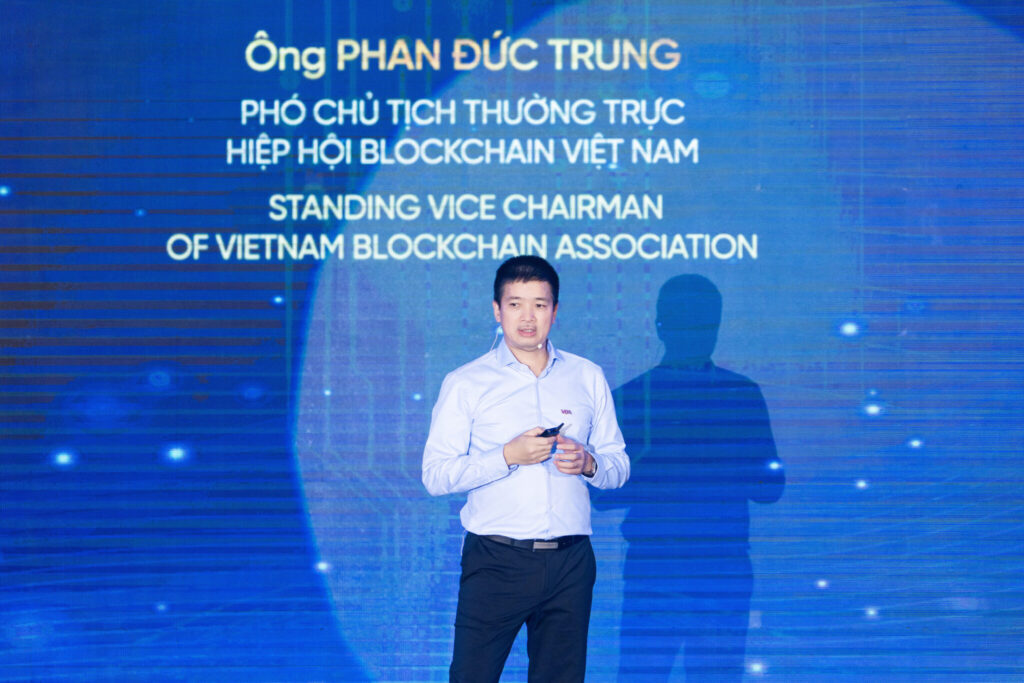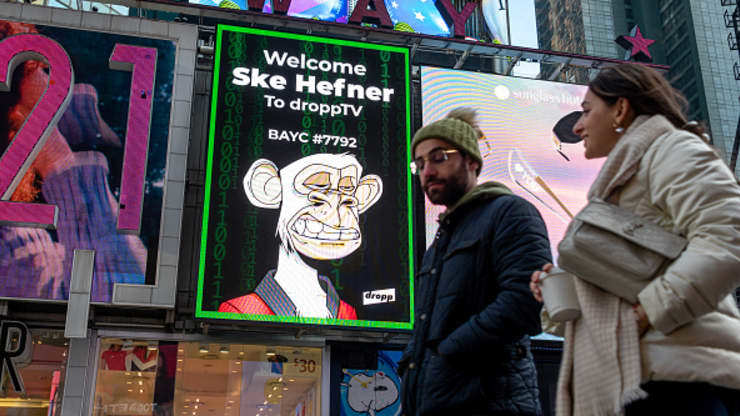The government is considering establishing a legal framework to either ban or regulate virtual assets in Vietnam, with the aim of mitigating risks related to money laundering and terrorist financing. However, experts argue that regulation rather than prohibition would yield significant economic benefits for Vietnam.
How Will Vietnam Handle Virtual Assets?
Ms. Nguyễn Thị Minh Thơ, Deputy Director of the Anti-Money Laundering Department (State Bank of Vietnam), stated: “Currently, Vietnam does not have any legal documents regulating cryptocurrencies, virtual currencies, or virtual assets, but some research materials have touched upon this issue.”
From an anti-money laundering perspective, the State Bank of Vietnam commonly uses the term “virtual assets,” which is broadly understood to encompass all related matters and is a term adopted by the Financial Action Task Force.

Regarding virtual assets, the State Bank of Vietnam has collaborated with various ministries and departments, including the Ministry of Finance, Ministry of Justice, and Ministry of Information and Communications, to conduct a national risk assessment on money laundering. This included an evaluation of risks associated with virtual assets.
“The results of the national risk assessment on money laundering, including the section on virtual assets, have been approved by the Prime Minister through a government resolution. More detailed information will be released soon,” Ms. Thơ said at a May press conference hosted by the Ministry of Information and Communications.
Under Decision No. 194 dated February 23, 2024, the Prime Minister outlined Action No. 6, which states that Vietnam must develop a legal framework to either ban or regulate virtual assets and service providers dealing with them.
A representative from the State Bank of Vietnam noted that the Prime Minister has tasked the Ministry of Finance and relevant agencies with addressing this issue. Among these, the State Bank of Vietnam and the Ministry of Information and Communications are required to implement a series of actions to mitigate the risks posed by virtual assets.
While the Anti-Money Laundering Law of 2022 does not explicitly address service providers dealing with virtual assets, the Prime Minister may propose to the National Assembly Standing Committee to include these entities under the scope of the law when risks arise.
Regulation Over Prohibition Brings Economic Benefits
Virtual assets represent a broad concept, encompassing various forms, including Real World Assets (RWA), a type of virtual asset linked to physical assets that has become a growing trend.
According to Mr. Phan Đức Trung, Vice President of the Vietnam Blockchain Association, RWAs could directly impact foreign direct investment (FDI) into Vietnam.
“The reason is simple: RWAs combine the high liquidity of tokens with the tangible existence of assets defined under traditional legal systems. This addresses two simultaneous issues: the ‘virtual’ nature of tokens and the low liquidity of real assets,” Mr. Trung explained.

Mr. Trung shared that the rise of RWAs is almost inevitable in the near future. According to projections by BCG, by 2030, the value of virtual assets connected to real-world assets will reach $16 trillion, equivalent to 10% of global GDP.
Commenting on the management of virtual assets, Mr. Phan Đức Trung noted that the misuse of virtual assets for money laundering and terrorist financing is a real risk that many countries around the world are currently facing.
However, regulators need to adopt a comprehensive perspective and should not focus solely on the risks while overlooking the potential benefits that virtual assets, and new asset classes in general, could bring to the economy in the future.
In the future, virtual assets have the potential to profoundly impact the global economy, and Vietnam is no exception. Virtual assets create numerous opportunities for the economy, drive technological advancement, generate new financial services, improve transaction efficiency, and reduce costs. They can also attract international investment, foster innovation, and support the development of tech startups.

According to the Vietnam Blockchain Association, extreme prohibition is not an optimal solution for virtual assets. Establishing a clear and transparent legal framework will help manage risks effectively while harnessing the positive value of virtual assets.
Virtual assets, or tokenized assets, are created through technological advancements on the foundation of the traditional Internet and have been accepted to varying degrees by several countries and territories.
Countries such as the United Kingdom, Australia, Canada, the United States, New Zealand, Singapore, and Switzerland are applying existing regulations, like securities market rules, to govern this sector.
The European Union (EU) has introduced a dedicated regulation known as MiCA, which will officially take effect in December 2024, to govern virtual assets. In South America, El Salvador has even recognized Bitcoin as an official currency and allocated national funds to invest in this asset class.
In Vietnam, representatives of the Vietnam Blockchain Association believe that state regulators should boldly develop a detailed and transparent legal framework to manage and oversee activities related to virtual assets. This includes establishing standards and regulations for security, compliance, and anti-money laundering.
The legal framework must be flexible enough to adapt to technological and market developments. At the same time, regulation should facilitate innovation, encourage investment, and help Vietnam integrate into the global technological revolution.
Read more at: Need to build an internationally competitive legal corridor for virtual assets
